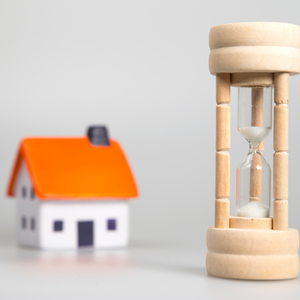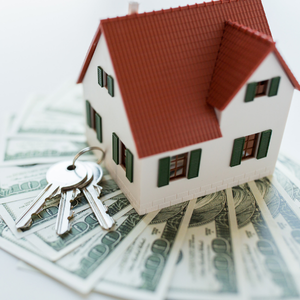
How Economic Conditions Affect the Housing Market in North Carolina
Economic conditions play a crucial role in shaping North Carolina’s real estate market, influencing both the best seasons for selling a home and overall housing demand. When the economy is thriving, with low unemployment rates and rising consumer confidence, potential buyers are more likely to enter the housing market, increasing demand for homes.
In such favorable economic climates, sellers in North Carolina often experience shorter listing times and potentially higher sale prices. But, during economic downturns or periods of uncertainty, such as recessions or when interest rates rise significantly, buyer activity tends to diminish.
This can lead to longer time-on-market durations and necessitate price adjustments to attract cautious purchasers. Additionally, fluctuations in mortgage rates directly impact affordability for buyers; lower interest rates can spur buying activity by making financing more accessible.
The interplay between these economic factors and seasonal trends means that strategic timing is essential for homeowners looking to sell their properties efficiently in North Carolina’s dynamic real estate landscape.
How Interest Rates Influence Housing Demand and Prices
Interest rates play a crucial role in North Carolina’s real estate market, significantly impacting housing demand and prices. When interest rates are low, potential homebuyers find mortgage loans more affordable, increasing their purchasing power and driving up demand for homes across the state.
This heightened demand often leads to higher home prices as buyers compete for available properties. However, when interest rates rise, borrowing costs increase, which can deter some buyers due to the higher monthly payments associated with mortgages.
This decrease in buyer activity tends to cool the market, leading to slower price appreciation or even price declines. In North Carolina, where the real estate market is diverse and varies from bustling urban centers like Charlotte and Raleigh to quieter coastal towns and mountain communities, fluctuations in interest rates can have varied impacts depending on local economic conditions and housing supply levels.
As such, sellers looking for the best seasons to list their homes must consider current interest rate trends alongside other factors influencing local housing markets.
Key Factors Influencing Home Prices in North Carolina
In North Carolina’s real estate market, several key factors influence home prices, particularly when considering the best seasons for selling a home. Seasonal demand plays a significant role, with spring and early summer traditionally seeing increased buyer activity as families aim to relocate before the new school year.

The state’s diverse climate impacts regional preferences, from the coastal areas to the mountain regions, affecting how and when properties are listed. Economic conditions such as job growth, interest rates, and population migration trends also heavily sway home prices.
Additionally, local amenities like schools, parks, and shopping centers can enhance property values in specific neighborhoods. The housing inventory available at any given time influences competition among buyers; lower inventory often leads to bidding wars and higher prices.
Understanding these dynamics helps sellers strategically position their homes during peak selling seasons in North Carolina’s varied real estate landscape.
The Impact of Location on Home Sales in North Carolina Cities
The impact of location on home sales in North Carolina cities is a crucial factor when determining the best season for selling a property. Cities like Raleigh, Charlotte, and Durham each have distinct real estate trends influenced by their unique urban landscapes and economic conditions.
In Raleigh, the spring season often sees heightened buyer activity due to its robust job market and influx of new residents seeking homes. Meanwhile, Charlotte’s bustling financial district attracts buyers year-round, but the peak selling season tends to be in late spring and early summer when families aim to settle before the new school year.
In Durham, known for its tech industry growth, the housing market remains competitive throughout the year; however, sellers often find success during autumn when inventory levels balance with demand. Coastal cities such as Wilmington experience different dynamics as vacation properties attract more interest during warmer months, making late spring and summer ideal for showcasing beachfront homes.
Understanding these regional differences allows sellers to strategically time their listings to coincide with periods of high demand in North Carolina’s diverse real estate market.
Seasonal Trends in Selling Homes in North Carolina
Understanding the best seasons for selling a home in North Carolina’s real estate market can significantly impact the sale price and time on the market. In North Carolina, the spring months, particularly April through June, are often considered prime time for selling homes.
During this period, warmer weather and blossoming landscapes enhance curb appeal, attracting more potential buyers. Additionally, families prefer to move during the summer when school is out, making them more likely to buy in the spring.
The fall season can also be advantageous due to less competition from other sellers and serious buyers aiming to close before year-end. However, winter tends to be slower due to holidays and colder weather, although motivated buyers may still seek opportunities during this time.
By aligning with these seasonal trends in North Carolina’s housing market, sellers can maximize their chances of a successful transaction.
Is It a Good Time to Sell a House in North Carolina?
Identifying the right time to put a house on sale in North Carolina has a substantial effect on the prospects of selling the home. Traditionally, the spring and early summer months are the best months to sell a house in North Carolina.

During this time, the weather is very favorable, and the school calendar is ending, meaning families are looking to move; interest in buying homes tends to rise. Additionally, homes are also easier to sell during spring, as the blooming landscapes enhance the view.
There is a spike in sales as well as transactions during the spring and summer months, leading to the assumption that this period is the best. It is also noteworthy that buyers who failed to purchase houses during the summer months may still be actively buying in the fall.
If you are selling a house in North Carolina, carrying out a real estate market analysis is a must. Local market trends and economic factors are also very critical. An informed real estate agent is able to arm you with the right insights on real estate conditions to help you sell your house at the best time possible.
What Is the Most Profitable Month to Sell a House?
In North Carolina’s real estate market, knowing the advantages of each month when selling a house requires meticulous timing. Selling a home during the spring months of April and May has usually yielded the highest profits for sellers.
Due to better climate conditions, the population usually tries to make a move before the summer. This, together with the increased offers, has proven to influence sale prices positively.
The added profits sellers gain are coupled with the increased curb appeal spring sellers receive, with blooming gardens and landscapes active. This attractiveness garners buyers. Selling a house during the spring months of April and May is a useful strategy to gain the highest profits from selling real estate in North Carolina.
These days, sellers have no issues selling a house. All that needs to be done is to plan the month the house is to be sold. Bearing all the above in mind, the spring periods in particular would be suggested.
Pricing Strategies for Homes in the North Carolina Market
In North Carolina’s real estate market, pricing strategies come down to understanding the seasonality of buyers. For example, longer days and warmer days in spring allow buyers to consider spending more time outside and, as such, more time home hunting.
It is for this reason that sellers are often able to price their homes more competitively and more optimistically because there seems to be more heat in the market. Unlike spring, autumn and winter tend to be quiet and off-peak, meaning there is low market activity and buyers are scarce. In these quieter times, more strategic pricing is required to pique the interest of buyers on the prowl.
In North Carolina’s Triangle, Charlotte, and coastal regions, the pricing strategies are market-condition dependent. In these geographies, pricing a home slightly below the competition is likely to create a bidding war.
In slow markets or off-peak times, pricing strategies such as offering discounts or being more strategic with the pricing tend to close the sale more quickly.
In North Carolina, offering very low-priced competitive homes within a closely timed time frame can secure a seller’s success.
Tips for Preparing Your North Carolina Home for Sale
Whether it’s spring, summer, or another warmer season, when selling a home, especially in North Carolina, one needs to make sure the home is neat inside and has some curb appeal to catch the eye of the potential buyers. Selling a house in North Carolina is an open market. To create a solid first impression, it is essential to improve the “Landscaping” section first on the list, which includes the so-called “curb appeal” along with the nicely mowed lawn and the “edge” trimmed and polished on the home.

In comparison to the interior, clutter is like weeds. By packing your personal belongings, the open space provides buyers with the opportunity to appreciate the potential of the space.
In most cases, when moving into a newly constructed home, it is much more pleasant to live in a house with newly painted rooms. This is especially the case if the paint is a neutral color, as it brightens the space, making it more welcoming, and making it also appear larger.
Modern buyers appreciate both the look and style of the light fixtures, so replacing the dated light fixtures is a best practice in achieving an updated and welcoming space.
A major consideration has to be the carefully selected and placed furniture (staging), which not only shows off the best features of the home but also creates a cozy feel. It is important to also not leave out the things that can be dealt with first, such as dripping faucets, squeaking doors, and any other minor touch-ups that will be sure to drive potential buyers away.
Wondering what the best time to sell a house is? While timing matters, sometimes waiting for the “perfect season” isn’t practical. If you need to sell quickly, avoid costly repairs, or prefer a stress-free process, Swift Cash House Buyer is here to help. We work with cash home buyers in Durham and nearby cities. We are known as a trusted company that buys homes in North Carolina, giving homeowners the flexibility to sell on their terms. You’ll receive a fair cash offer, no hidden fees, and we handle all the details to make selling seamless. Ready to move forward or have questions? Contact us at (610) 590-9845 for a no-obligation cash offer and get started today!
Helpful North Carolina Blog Articles

| CHARLOTTE, NC | RALEIGH, NC | REALTORS | HOUZEO | AVERAGE | THE RESEARCH TRIANGLE |
| MLS | MONEY | MARKET DEMAND | DATA | CREDIT | ESTATE AGENTS |
| U.S. | LENDING | FSBO | FOR SALE BY OWNER | EQUITY | DOWN PAYMENT |
| TAX | TAXES | MEDIAN HOME PRICE | NEGOTIATE | NEGOTIATING | REALTOR® |
| THE NATIONAL ASSOCIATION OF REALTORS | INTERNET DATA EXCHANGE | EXPERT | COPYRIGHT | CASH | BLOG |
| A SELLER’S MARKET | NORTH CAROLINA THE | IN NORTH CAROLINA THE | ON THE MARKET FOR |
